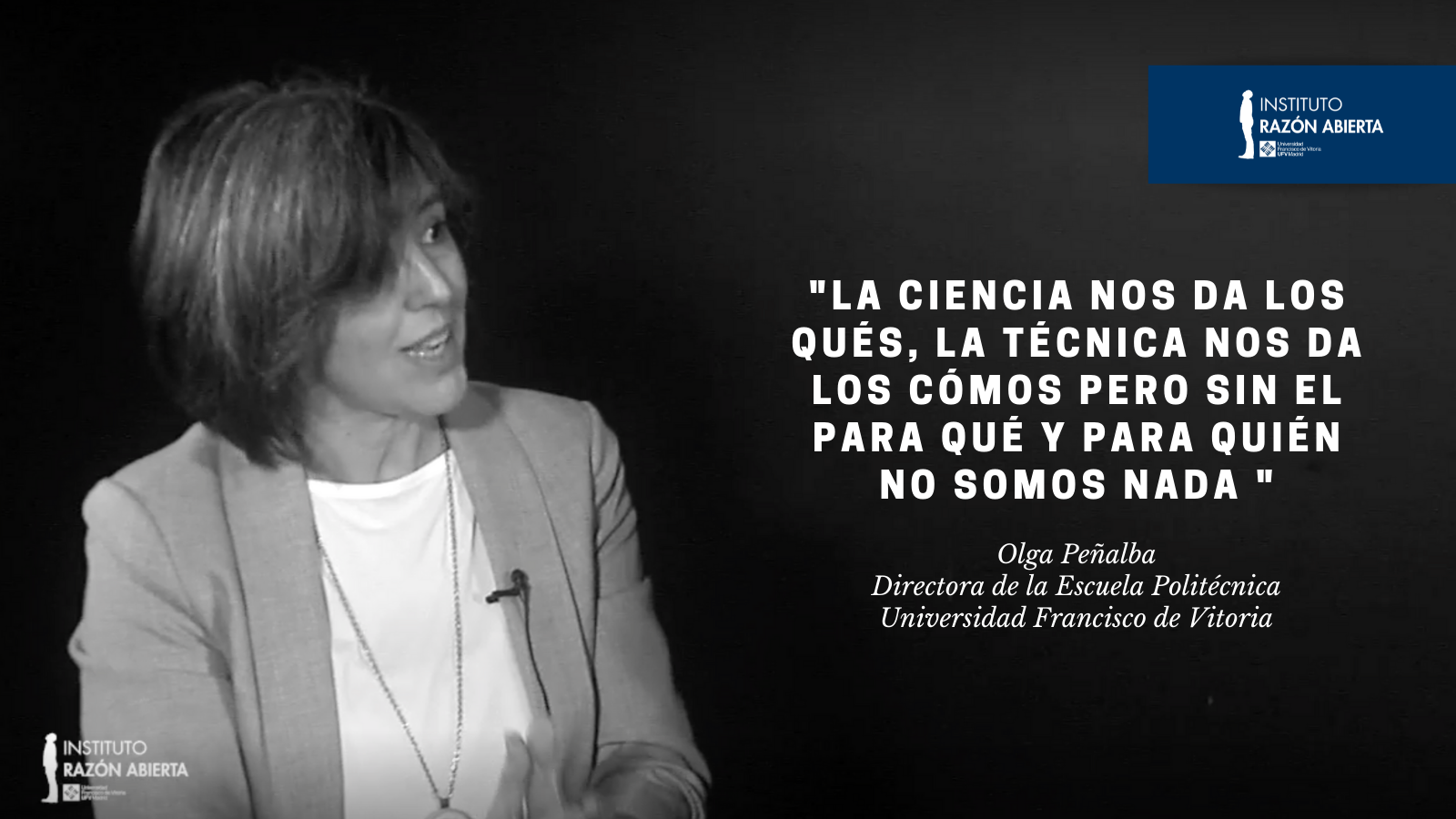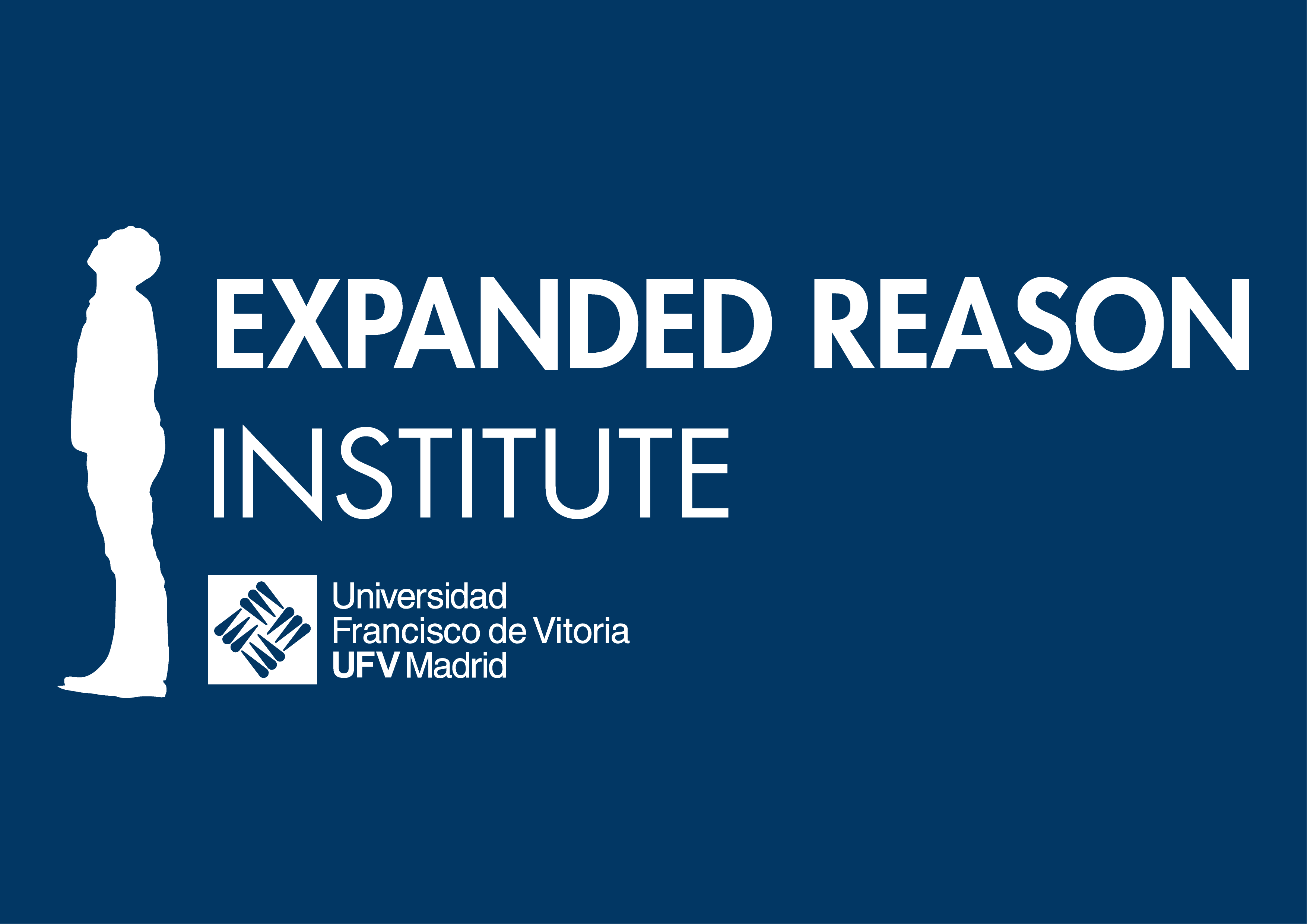https://www.youtube.com/watch?v=E-4doFlGbF4
It is certainly difficult, it is difficult for us, perhaps more than for other profiles, for two main reasons. One, because the knowledge itself of a more philosophical nature or in the field of humanities is a knowledge that is difficult for us from the start because we are used to working with numbers and formulas, our mind works differently, to understand a philosophical text approaching the truth behind it is already difficult for us; and then, we have a very large professional deformation and that is that we take for good that which is scientifically proven, that can be verified in some way, so philosophical knowledge that has a different way of approaching it is difficult for us because of our own training.
The good thing is that in the end we are all the same, we all look for meaning in what we do, and the meaning of the engineer’s profession does not come from science itself or from the technique itself, it has to come from another source. So when you tell the student what the meaning of his profession is, you ask him to go further and ask himself about the purpose of the career, he understands that this cannot be answered from that scope and that is where he begins to broaden his view.
I think it is less complicated for them than for us, because in the end we have a much broader trajectory, many years of understanding the career in a more reductionist way and when you make them an approach from the open reason they enter and see it more naturally, it is more difficult for us teachers than for the students because we have to unlearn somehow what we have learned.
I always try to make them see that science gives us the whats, technique gives us the hows (and that is very important since being a technical career the fundamental thing is the methodology to be applied), but that without the for what and the for whom we are nothing, in the end what we do is to apply science to build something for the good of someone and without the component of the for what and the person for whom we work the career does not stand, we are missing something. That is where we enter, but it is difficult.

We have recovered an article that you presented to the second edition of the 2018 Expanded Reason Congress in which you make an interesting reflection on the fundamentals of Computer Engineering. In the end, the engineer does not stop being a person who works with people to offer a service to another person. How can you go beyond a complex calculation to see behind the person his gift, a free being or a vocation? Why is open reason, the broad look necessary? Can you give us some more clues about that article?
Yes, what we presented in that article was a reflection on a very specific subject that tries to give a global vision of the career that, to a certain extent, is a reflection on the discipline itself. The subject, called Fundamentals of Computer Engineering, was very much in terms of scientific and technical foundations, mainly mathematics and physics, the basis of computer science. But we realized, effectively, that the profession cannot be practiced if you do not have a strong ethical and anthropological basis, because in the end, as I said before, you ask yourself what you do, why you do it, in what historical context you do things, and that conditions it, it is not the same to do a project today than 30 years ago or the projects that will be done in the future. All that social context, the vision of the man you have for whom you are working, in the end what you do is to provide a service to society and to people, without that clear vision you cannot exercise the profession with the same quality.
What the article states is that we cannot only stay with the scientific and technical, but we must also go to the ethical and anthropological foundations. We work with people, for people, and how we understand the other and the relationship we establish with the other and the good we want to procure is the key to what we do, so that it makes sense and is useful to society and really worthwhile.
Currently, technology is one of the most talked about issues, the paradigm of the 21st century. What benefits and dangers do you see in a technologization of society? How can we truly know reality through technology?
It is clear that technology is a tool and like all tools it has a good use and a bad use. For whoever creates them has to be aware that what he is creating can be used for the right and proper purpose for which it was created or for the wrong one. And from the user of the tool itself there are many associated risks that we all know. I believe in the positive view of technology, although I am aware of the risks and I try to train my students in them, but I have an optimistic view, I believe that if it is put at the service of people it really makes life here on earth easier for human beings. Perhaps the biggest risk I see in progress and technology is that every little step we take seems to be innocuous to a certain extent, but it is the sum of the steps that take us to a point from which there is no return and when you see yourself there you say how did we get here? That’s why we have to be very conscious, all of us who work in this sector and the people who make decisions about the next steps in technological development have to be aware that each step has to be measured a lot. Each advance is tiny, it seems that it does not change big things in society, but when we have realized that we have advanced a lot and there is a lot of risk.
For example, there have been many reports in recent times of the impact of social networks and all cell phones on students and their development, especially in adolescents and pre-adolescents who are “hooked” so to speak, using your terminology, to the networks, and that is having an impact on their own technological development. Of course, when networks are created they are created for a good purpose and make sense and when used well they are good, but we see the impact they are having on young people years after they are there and now there is no turning back or it is difficult to turn back.
Then technology always conditions engineers, everyone sees life through glasses and engineers see life through glasses and if they don’t remember to take them off from time to time to try to see things from another perspective, they fall into reductionism: seeing life in terms of problems, believing that everything has a solution and that we are always here to solve things, but not everything has to be solved or not everything can be solved, or measuring life in terms of how we measure machines, if it is efficient or productive, if this relationship serves me for something or not, measuring everything in terms of utility. This is one of the biggest risks that technology has.
Not to mention artificial intelligence, which is very popular….
…that’s a very exciting topic…
I don’t know if you know the Korean philosopher Han who is also now very popular who proposes that the danger of Artificial Intelligence (AI) is that by connecting two phenomena A and B the machine cannot say why A happens, it is very difficult for an AI to become like a human mind, but it is also positive isn’t it?
I have read news about this philosopher and, although in some things he is a bit catastrophic, in AI there are basically two currents among thinkers and scientists: those who believe that AI will be able to think like we humans do and will be possible at some point not in the short term, and those who believe that this will never be feasible, that it will always be artificial and that it should not even be called intelligence because the processes that a machine follows to produce a result are not even similar to those of people.
I believe that AI is a powerful tool that is helping us a lot, for example, everything that is impacting the diagnosis of preventive medicine and, like all tools, AI used well is good, but where it is going to go, that is one of the areas towards which we have to evolve very carefully. I know that ethics committees are being set up in many companies, institutes nationally and internationally that are concerned about the evolution of that area, about throwing sense and prudence into that particular area of technology that seems more challenging than others.
What is distilled throughout the interview is your experience as a teacher, beyond your position you are a teacher who relates to students, how do you see in the day to day of a class that the student is amazed, what makes them ask questions that start from science, but that transcend it?
The student has an incredible potential. If you give them the playing field they need, students easily enter into open reason and they are also capable of creativity, of having ideas… I am often surprised by what students do, in questions they launch or the proposals they make, you just have to let them, and know how to guide them a little, but they easily enter into these questions because they have it in their hearts.
In a subject we have on projects, we have set them a challenge, which is the problem of the million. They have to think about the development of an application that solves a problem that affects at least one million people in the world. They have to think about what that problem could be, document it and develop a solution to the extent they can, they can’t always go to a complete solution because at the technical level they don’t have the skills. It’s amazing when you give them a little freedom and make them think in terms of contributing to each other how they come up with incredible ideas, many of which would not have occurred to us teachers as a subject project. You have to let them, they have infinite capacity and they are wonderful.
Well, we are left with this positive vision of the human being, the confidence in the yearning that we all carry within us to know the truth and in an anthropological vision of man that dignifies him. It has been a pleasure to be with you, the RA Institute is open for you to continue enlightening us, so thank you very much.
Thanks to you, to the Institute for all its work and for giving me this opportunity to share.


No comment